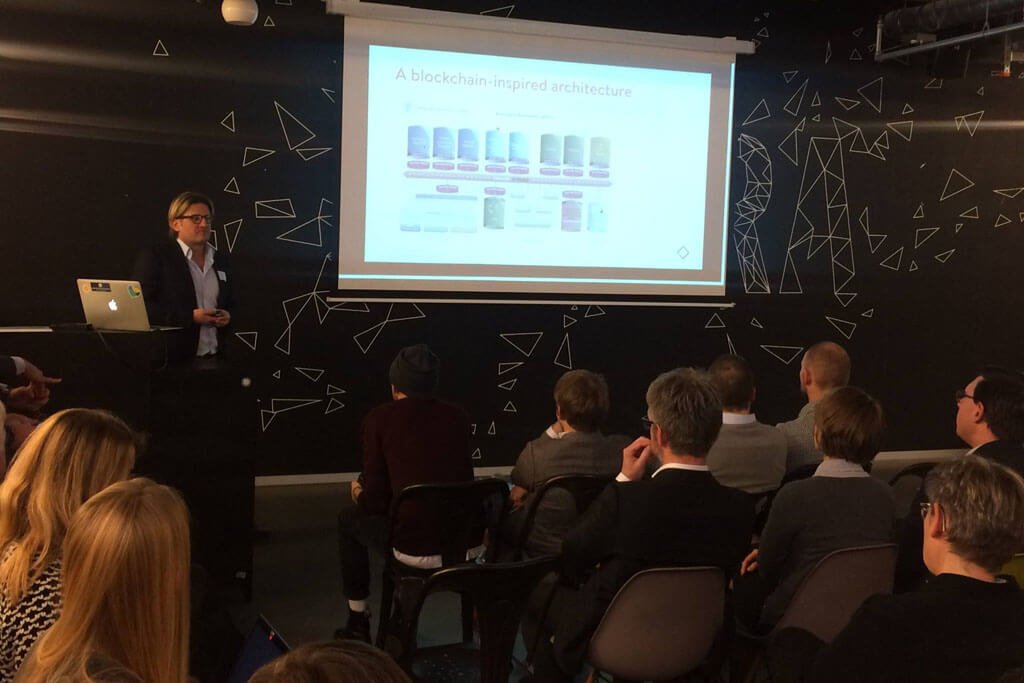Zürich-based startup VALID uses blockchain technology to unlock the ability for users to monetize their traffic and return full control over their digital identities.
A few decades ago, people communicated and worked exclusively on paper. While television and telephones expedited the flow of news, ink remained the principal mode of mass communication. The internet disrupted the status quo, offering digitized, instantly available information from anywhere in the world. It has evolved into a central part of most societies, and individuals spend substantial amounts of time connected to the web daily.
We can easily store data, publish it, chat, share, and do business online in ways that have accelerated the pace of every industry while strengthening the global market for goods and services. However powerful the internet is, its growth and evolution have forced us into sometimes uncomfortable compromises.
While eCommerce, online investing, streaming services, videogames and other profitable disciplines have advanced, data security has unfortunately fallen behind. The norm has been to prioritize convenience over safety not just because that’s the direction the industry has grown, but also because the incentives behind our status quo are so enticing.
Entrenched online interests such as application developers and stores, large corporations, and major service providers were traditionally motivated to keep centralized control over the internet’s data flows because they stood to benefit from serving as its exclusive gatekeepers. While this notion used to be true, the last few years have seen even the biggest stakeholders searching for a novel solution.
The Invisible Compromise
Every day, more users flock to popular social media sites, applications, and software that is apparently free, but comes with hidden strings and costs. When you distractedly click through the Terms & Agreements, you’re also agreeing to trust the company to keep your identification and usage data safe on their own hardware.
This deal is a product of the times: for reasons of stability and efficiency, concentrated banks of servers have always been the easiest way to offer a service or platform to a large, remote audience.
The data these corporations collect has value that many users aren’t aware of, and the way that it is captured leaves customers exposed. Businesses monetize this data hoard by selling it to other firms who use it to better target their audience and gain insights on buyer or browser behavior.
The information that users volunteer is worth billions to these organizations. Many believed the benefits outweighed the risks involved with keeping customer data safe, but hugely compromising events like the Equifax breach have shown corporations that a vise grip on their users’ data isn’t always a win-win scenario. It can forever erode their reputation in the marketplace.
Each company must contend with this balance individually: a situation has prevailed where people are forced to have faith in the data integrity practices of hundreds of services simultaneously.
Blockchain’s Potential for ID
Blockchain is turning the tables on the old model in many novel ways. Instead of hosting users on a centralized server, blockchain companies distribute services over a decentralized network comprised of these users themselves.
The entire network is kept aligned by a ledger that each node uses to achieve consensus with the others. Blockchain infrastructure brings a plethora of benefits to those who choose to host on top of it. One default advantage is that decentralized networks are naturally resistant to hacks and other attacks like distributed denial of service (DDoS), because the service is hosted in many places at once.
Services like VALID will be an important part of the next generation’s blockchain ecosystem. VALID specifically uses blockchain to unlock the ability for users to monetize their traffic and return full control over their digital identities. Because blockchain operates through a decentralized ledger and makes use of cryptographic hashing, companies with customers using VALID can accurately verify their identities and activity using just a public key, keeping information accessible and verifiable, yet also secure.
The decentralized VALID marketplace is an exchange medium whereby users who have control over their identity and various data streams can manage who they share it with, and how it is shared. One can choose to keep every trace of their online existence hidden if they wish, or actively sell their browsing, social media, gaming, or other data to willing buyers.
Thanks to smart contract functionality, VALID users will define how they’d like to share their data on a service-by-service basis, flipping the old model on its head. As blockchain becomes a more popular tool for these providers, users alike will increasingly deploy tools like VALID to manage their self-sovereign ID while companies can take advantage of a more transparent, accurate pool of data.
There are others working to accomplish a similar paradigm on blockchain as well, such as Basic Attention Token, an early entrant into the new era of data sharing. BAT is a tokenized way to manage monetized streams of data between users, and advertisers or publishers, with a browser-based platform that gates these channels for each person. With BAT, when a user interacts with an ad, he or she is paid proportionately, instead of the money going to the search engine or advertiser.
Shaking Up the Data Dynamic
For individuals and businesses alike, the new functionality that blockchain brings to the table is valuable. Customers can keep tight control over their most sensitive identifying information and no longer need to lend it out to every service they interact with. They’re also able to use this idea to keep their data from being valuable without their own express permission.
In turn, companies no longer need to wonder about the accuracy of the data they collect, because it’s being taken from verified sources thanks to concrete identifying and behavioral data. They’re also no longer on the hook for keeping this data secure, allowing companies to focus on running a lean and competitive operation, and not on the potential risk to their reputation from faulty storage or sharing models.
